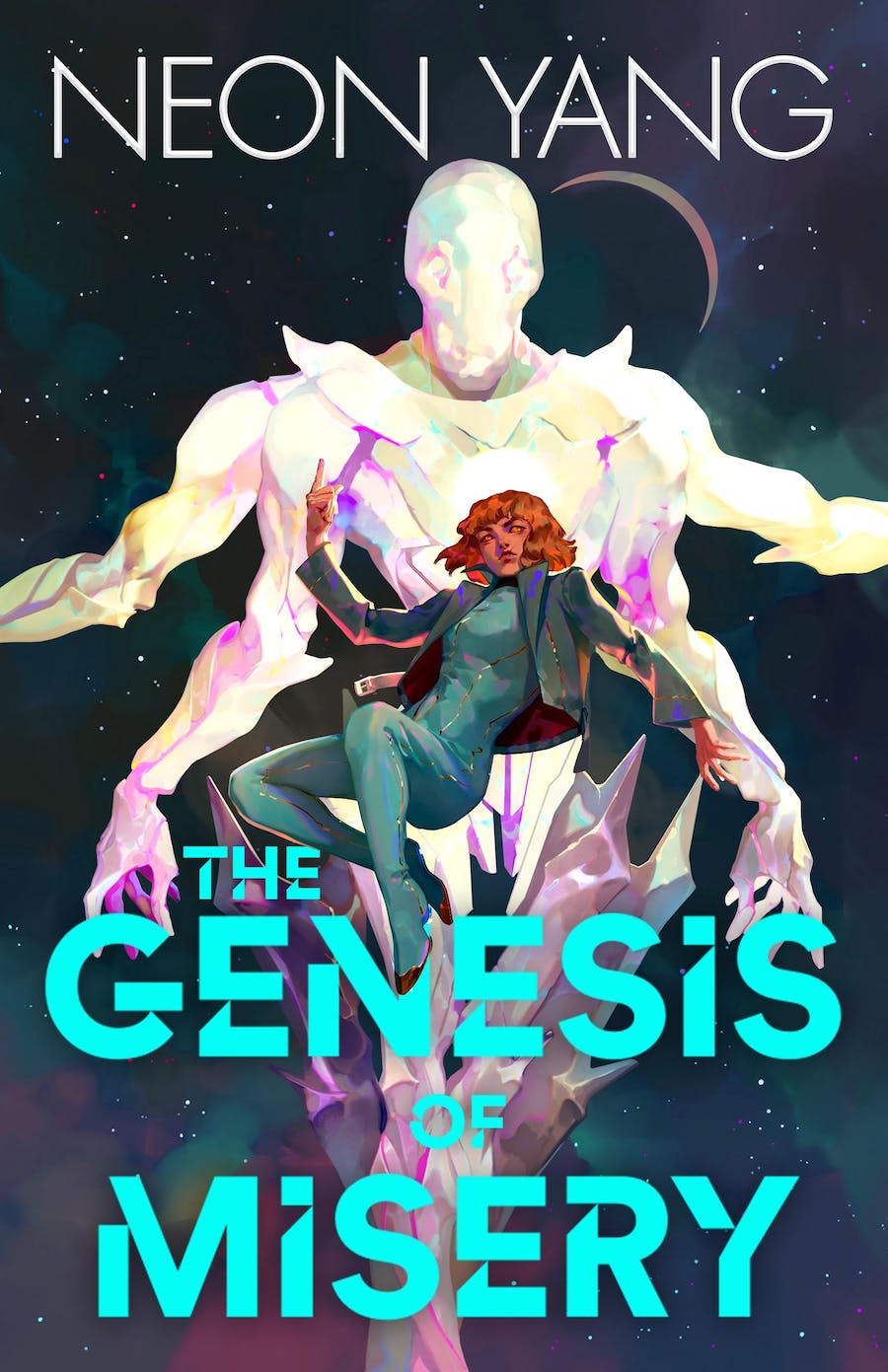enne📚 reviewed The Genesis of Misery by Neon Yang
The Genesis of Misery
4 stars
"Is there one among us who has not behaved badly in this tale?"
I would pitch this book as Gundam Joan of Arc. It follows the course of the life of Misery Nomaki :drum: who believes they are sick with the same void madness that claimed the life of their mother and causes them to hear the voice of an angel telling them what to do. They lie their way into being the foretold ninth messiah to try to get themselves out of larger trouble, but everybody believes them (and eventually they begin to wonder if maybe they're not lying to themselves after all).
I love Neon Yang's worldbuilding and characters. This book is set in the far future where humanity's exodus into the stars took them into a realm where a "nullvoid" epidemic warped people's bodies; they were saved by the Larex Forge who teaches them how to use magic stone and protects them from the nullvoid. There's also a political conflict between the throne and the church, who are at war with heretics.
Small details I enjoyed:
-
One common motif here is "lies". The story about the Larex Forge is clearly a self-serving church narrative, but we only see one side. Misery lies to other people and to herself, and we only see the world through her eyes. We see a lot of the church and some of the throne, but hear very little of the heretics and what their side has to say for themselves. Also, the epilogue itself is a discussion about lies.
-
I love the way that Misery changes the way they talk over the course of the book as they change from feeling like they are lying their way through the world to starting to become invested in their own ninth Messiah identity.
-
The book explicitly gives everybody's pronouns, and I love that there's a minor plot detail that hinges on Misery using a pronoun for somebody they aren't supposed to know about.
-
The angry royal princess with a whip who has a knock-down fight with Misery the first time they meet felt like a classic romance introduction, but I thought she ended up being a fun character. That first fight is also such a great literal introduction to the conflict between the church and the throne.
This is a book that is understandably entirely focused on the experience and biased perspective of Misery, and it leaves the motivations and machinations of throne, church, and heretics out of view. On top of that, the epilogue and ending narrative framing create far more questions than they answer and call many things into doubt. All of this together made me feel as if I had missed some significant puzzle pieces while I was reading. However, I learned afterwards that this is the first book in a trilogy, which hopefully creates room to fill in all these juicy details later.

